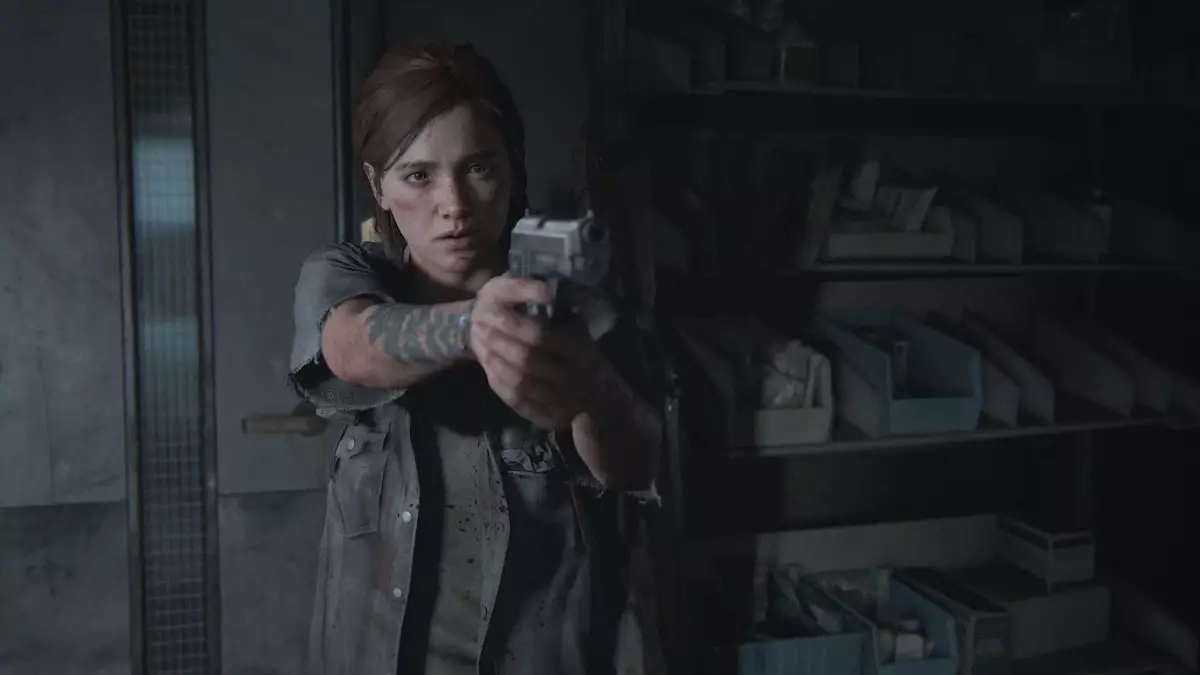Touted as a critical and commercial success, “The Last of Us” series has carved a unique niche within the gaming landscape. However, recent comments from Naughty Dog president Neil Druckmann suggest that the franchise may not see another installment, a notion that feels increasingly more plausible with each revelation. The once-promised “The Last of Us Part 3” now appears to be shrouded in ambiguity. Druckmann’s hesitance reflects a significant shift in narrative direction: what once seemed like an inevitable sequel is now very much uncertain. This retreat from his previous enthusiasm indicates a greater struggle within the creative process, where delivering an experience that lives up to its predecessors becomes a formidable challenge.
Druckmann’s change in tone can be interpreted as an acknowledgment that sometimes, less is more; the story arc has perhaps reached a natural conclusion, leaving audiences with a bittersweet sense of closure—though this resolution may not align with fans’ fervent desires for continued exploration of character arcs and themes. An anticipated discourse surrounding moral ambiguity, love, and survival has already been covered extensively, which raises the question: what more can be said?
New Horizons or Abandoning a Legacy?
The announcement of a new franchise, “Intergalactic: The Heretic Prophet,” raises eyebrows and concerns for fans who have come to associate Naughty Dog with “The Last of Us.” This pivot toward creating fresh intellectual property (IP) marks a significant departure from the studio’s established identity and legacy. While evolving creatively is vital for any studio, the decision to shift focus from a beloved franchise could feel like a betrayal to loyal followers.
While Druckmann describes the new project as an exciting venture—with a narrative promising to be their “wildest” yet—the comparison begs further reflection. Can a product of entirely different genre and tone truly encapsulate what made “The Last of Us” resonate so deeply? The feelings of bittersweetness and dark moral confrontation that made players connect with Ellie and Joel may be difficult to replicate in a new sci-fi context. For long-time supporters of the franchise, the worry is palpable that the studio may abandon what feels like unfinished business in pursuit of a different narrative trajectory.
Implications for the Gaming Community
Druckmann’s remarks around the precarious status of “The Last of Us Part 3” signal wider implications for the gaming community. The series has not only evolved the craft of storytelling within video games but has also pioneered discussions around representation, emotional depth, and the ethics of survival. Should Naughty Dog indeed allow this chapter to close without further exploration, it risks leaving a void in the conversation regarding darker themes in gaming.
The mixed reaction to the controversies surrounding “The Last of Us Part 2” further complicates matters. While its story was undeniably ambitious, it polarized fans and left many questioning the direction the narrative was taking. After witnessing the backlash from divided audiences, it is conceivable that the studio’s hesitance to continue may stem from a desire to avoid further alienating players.
Moreover, in a climate where gaming storytelling is evolving rapidly, capitalizing on established franchises is an opportunity that few developers can afford to neglect. With major studios seemingly prioritizing profit margins from reliable IP, Druckmann’s comments hit particularly hard. What happens when a beloved franchise suddenly finds itself adrift? It creates an unsettling oscillation between hope and despair within a vibrant gaming community, evoking the very themes of survival that so characterized “The Last of Us.”
As these uncertainties linger, one thing remains clear: the gaming world stands at a fascinating crossroads. As Druckmann and Naughty Dog explore new realms of creation, fans are left to ponder what they may be leaving behind—an enduring legacy filled with complexity, heartbreak, and the hard questions of humanity. The narrative that became iconic in the gaming world may indeed be closing a chapter; only time will tell whether it will rise again in another form. The stakes have never been higher for both creators and players, as we navigate the rich but complex landscape of emotional storytelling in video games.

